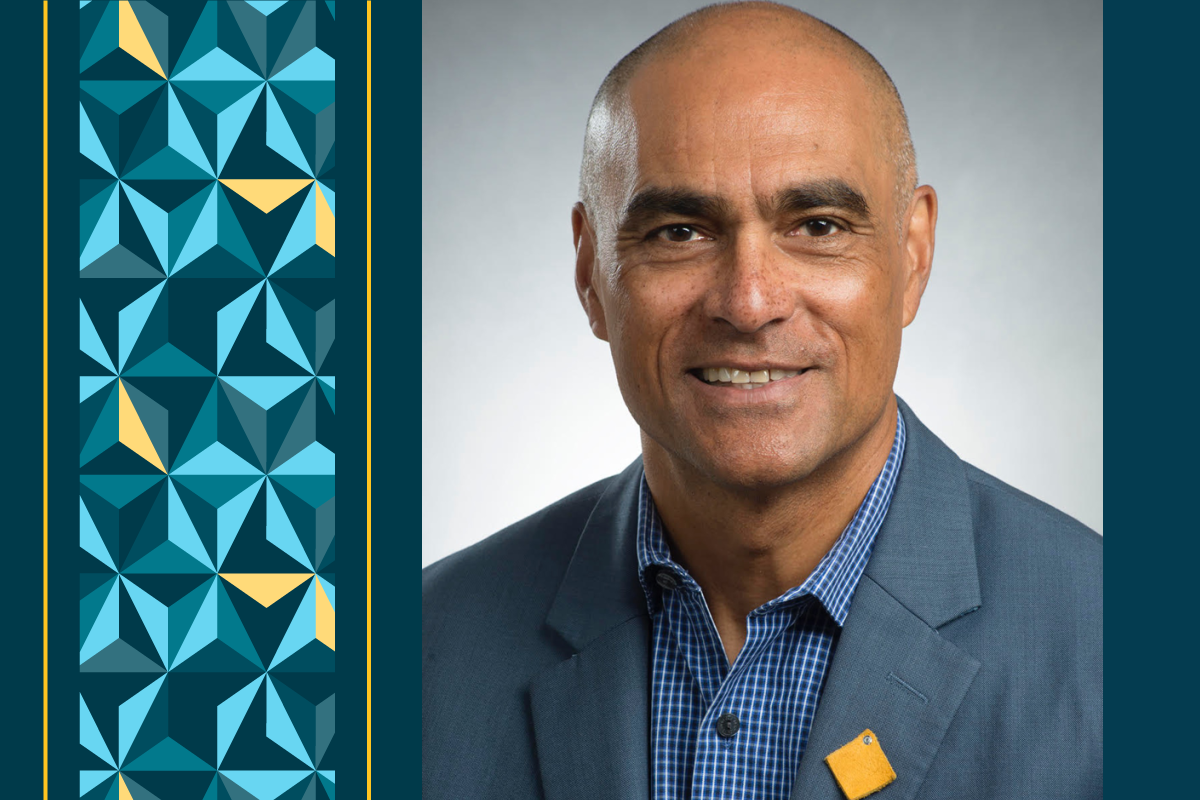Alumni Honour Award winner a force for change in education
Carmen Rojas - 1 November 2022

For Jerome Cranston (‘90 BSc, ‘92 BEd), dean of the Faculty of Education at the University of Regina, the realization that he wanted to become an educator didn’t happen in a classroom, as you might expect. Instead, it happened on a track in the midst of an uncertain time in his life.
It was the mid-1980s and the athletically gifted Cranston was working at a sporting goods store in Calgary after leaving his studies at the University of Alberta mid-way through an undergraduate science degree. He was asked to become a guide runner for a young man who had lost his vision in a car accident, to help him get around the track as he ran the 400-metre dash.
Cranston threw himself into the role, helping the athlete win competitions as he rose to become the third-ranked Paralympic 400-metre runner in the world. And in the process, it changed the course of his life.
““[I realized] that’s what teachers do: you work really, really hard so that other people can accomplish their goals, and you fade into the background and get to watch people have incredible success from time to time,” he says.
A new purpose
With renewed determination, Cranston returned to the U of A to finish his science degree and apply to the education program. It wasn’t an easy road, as he discovered he needed to complete his two additional summer classes in order to apply to the Faculty of Education’s after-degree program. But the associate dean of undergraduate studies at the time agreed to take a chance on him and hold a spot in the program — an act that he credits with changing the trajectory of his life.
Once he was officially admitted, Cranston says he finally felt at home. “There’s always been a struggle for me to feel like I belong as part of an institution, but there was a different sense of belonging in the Faculty of Education,” he says.
‘I knew I wanted to change the system’
After graduating with his BEd in 1992 and beginning his teaching career, one of Cranston’s priorities was to bring that sense of belonging to his students. But he knew that to make a meaningful change, he couldn’t stop at his own classroom — he needed to address the inequities in the system itself.
“From the moment I stepped foot in a school as a six-year-old, I knew I didn’t look like anyone else in my class,” he says of his own awareness of systemic racism. “From the moment I walked into a school as a teacher, I knew I wanted to change the system.”
Over the next 16 years — as a teacher, principal and superintendent at K-12 schools across the three prairie provinces — Cranston strived to recognize the diversity present in his schools and to create a place where all students could feel welcomed, at home and safe.
Alongside his career as an educator, Cranston also returned to his own studies, earning an MEd from the University of Lethbridge and a PhD from the University of Manitoba, both in Educational Leadership and Administration, in 1998 and 2007.
As a doctoral student, he was invited to guest lecture for a class taught by Professor Dawn Wallin, who at the time was at the University of Manitoba, where he “fell in love with the idea of interacting with adults who were becoming teachers.”
“It wasn’t just the teaching,” he says. “It was the ability to think that if I stepped into a classroom with 35-40 prospective teachers, potentially those folks will change the system also.”
A new chapter
In 2008, Cranston began his academic career as an associate professor in the Faculty of Education at the University of Manitoba, later serving in leadership roles as Associate Dean (Undergraduate Programs) and Executive Director of Student Engagement and Success.
During this time, Cranston developed a bold new admissions policy, which was introduced in 2016. The policy — the first of its kind at an education faculty in Canada — allows 45 per cent of new applicants to apply under a diversity admissions category.
“We wanted two actual competitions: one that recognized there are people who face much more disadvantages and therefore it would be inherently unfair to ask them to compete with people who society has created an easier path for,” says Cranston.
A follow-up study done by one of Cranston’s colleagues in 2020 revealed that the social demographics of the student body in the Faculty of Education had changed dramatically in the four years since the policy was introduced.
Since becoming dean of the Faculty of Education at the U of R in 2018, one area of focus for Cranston has been building the Community-Based Faculty of Education program. The goal of the program is to allow Indigenous, First Nation and Métis students to remain in their home communities while they complete their studies, where they can receive a culturally relevant education while also serving as role models for younger students.
Earlier this year, the U of R also partnered with the Canadian School Boards Association to help in its nationwide anti-racism efforts. Cranston and his colleague Andrea Sterzuk are working on a two-year project to help school boards evaluate their policies and devise strategies to make schools more equitable and inclusive.
Cranston’s unwavering dedication throughout his career to the hard work of dismantling structures that perpetuate racism has earned him the respect of colleagues across the country, and now, the recognition of his first alma mater.
As he prepares to travel to Edmonton to accept the Alumni Honour Award on November 3, Cranston is humbled to be celebrated by the institution that took a chance on him all those years ago.
“All of this is quite overwhelming and amazing to me.”